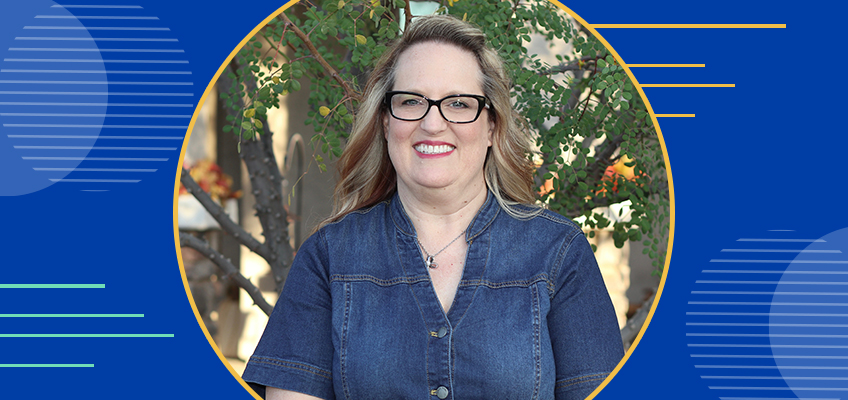
“The only way to do great work is to love what you do.” If this sentiment from the illustrious Steve Jobs is to be believed, then Wilson® Literacy Specialists like Cassie Bates are among the very best at what they do. We sure think so! Thanks to Cassie for sharing a glimpse of her inspiring journey, experiences in the classroom, and invaluable advice for educators striving to make a lasting difference.
My name is Cassie Bates, and I’ve been with Wilson Language Training® for one year as a Literacy Specialist. I’ve been in education for about 25 years in various roles, including second grade teacher, reading specialist for K-6, literacy specialist, and district literacy coach.
My main job is equipping teachers with the tools they need to help students learn to read and write, which ultimately impacts student achievement. Seeing teachers gain confidence and watching students grow in their reading skills is incredibly rewarding. It’s especially gratifying to see the growth in primary grades, like kindergarten and first grade, where students can change so much in just one year.
While working in public schools, I had the opportunity to get my Wilson Reading System® Level I Certification, and the initial three-day training was a game changer for me. As a reading specialist, I was trying to help kids who were struggling to learn to read, but some of my students just weren’t making growth and progress. Nothing I tried seemed to work and I didn’t know what else to do–I felt helpless.
But during that training, it all clicked—it wasn’t just about the program; it was about understanding why these kids were struggling and what they needed, as well as what I could do to help them. That epiphany changed the direction of my career, and I knew then that I wanted to work for Wilson. Almost 20 years later, I finally achieved that goal, and it’s a dream come true. I love what I do!
Wilson programs are well-written, systematic, and explicit, but they also cater to students’ developmental needs. The support and training that teachers receive are crucial for successful implementation. When teachers understand what the lessons should look like and how to use the materials, that’s when the program becomes truly effective.
Sure. I once worked with a second-grade teacher who was initially resistant to using Fundations. She thought it seemed too simple for her students, who were mostly doing well in reading. I asked her to trust me and try it for a week. After that week, she was amazed. She saw that the program created an even playing field—everyone was learning together, including her struggling readers. She became a believer in the program after that and saw its value for all her students.
First, dive into your manual and familiarize yourself with the lessons and activities. Understanding the different procedures is key. Next, think about how you’ll manage the materials—where to store them and how students will access them. Being organized from the start will make a big difference. As you teach, consistency is important, especially for struggling readers. Carving out regular time for small group instruction to give these students extra practice is crucial.
The Fundations Readers are excellent for helping students apply what they’ve learned, focusing on automaticity and fluency in an engaging way with characters that appear across multiple book titles. FUN HUB Practice is another great tool to keep students engaged with interactive digital activities mapped to the daily lessons. It’s important to provide students with multiple opportunities to practice in different ways, and these resources align perfectly with the whole group instruction, reinforcing what’s been taught.
Always be willing to learn and seek out new knowledge. If something isn’t working, ask questions. It’s okay not to know everything. As a young teacher, I thought I was ready to take on the world, but being humble and open to learning more makes all the difference. Teaching is an ongoing learning process.